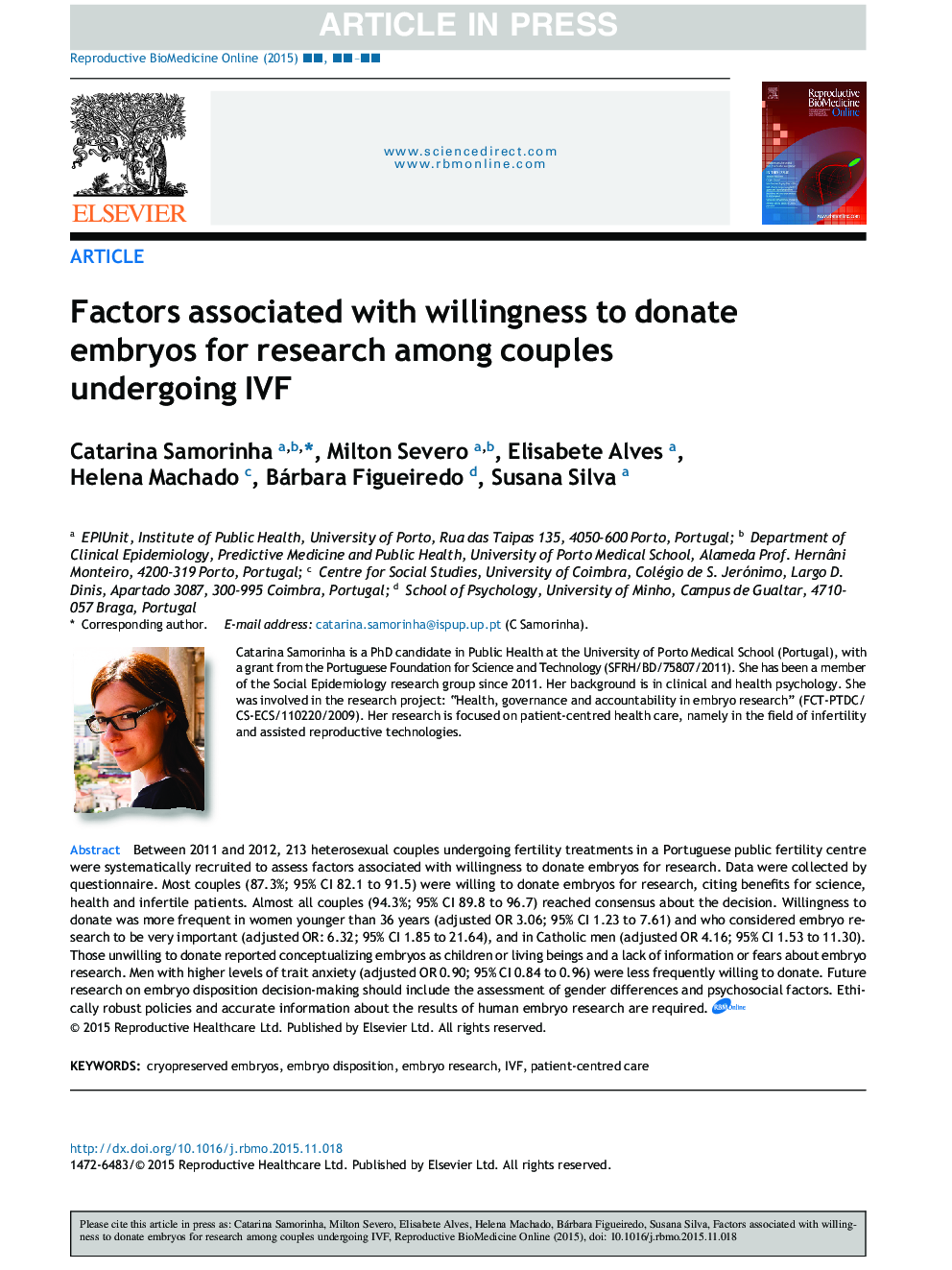| Article ID | Journal | Published Year | Pages | File Type |
|---|---|---|---|---|
| 6188645 | Reproductive BioMedicine Online | 2016 | 10 Pages |
Abstract
Between 2011 and 2012, 213 heterosexual couples undergoing fertility treatments in a Portuguese public fertility centre were systematically recruited to assess factors associated with willingness to donate embryos for research. Data were collected by questionnaire. Most couples (87.3%; 95% CI 82.1 to 91.5) were willing to donate embryos for research, citing benefits for science, health and infertile patients. Almost all couples (94.3%; 95% CI 89.8 to 96.7) reached consensus about the decision. Willingness to donate was more frequent in women younger than 36 years (adjusted OR 3.06; 95% CI 1.23 to 7.61) and who considered embryo research to be very important (adjusted OR: 6.32; 95% CI 1.85 to 21.64), and in Catholic men (adjusted OR 4.16; 95% CI 1.53 to 11.30). Those unwilling to donate reported conceptualizing embryos as children or living beings and a lack of information or fears about embryo research. Men with higher levels of trait anxiety (adjusted OR 0.90; 95% CI 0.84 to 0.96) were less frequently willing to donate. Future research on embryo disposition decision-making should include the assessment of gender differences and psychosocial factors. Ethically robust policies and accurate information about the results of human embryo research are required.
Related Topics
Health Sciences
Medicine and Dentistry
Obstetrics, Gynecology and Women's Health
Authors
Catarina Samorinha, Milton Severo, Elisabete Alves, Helena Machado, Bárbara Figueiredo, Susana Silva,
